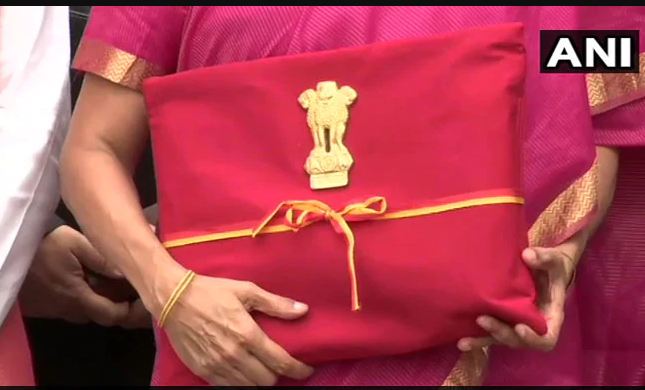The 200-year long British colonization of India was, even after independence, not only visible on the policies and policymaking but also the thought process of the Indian state. Even after independence, the Congress government tried to emulate the British tradition in academia, media, policymaking, and polity rather than taking steps to Indianize it.
Even the archaic traditions which had been abandoned by the British government were continued in India by successive Congress governments. BJP governments whenever in power tried to Indianize the system.
The latest step towards this direction was seen when Union finance minister Nirmala Sitharaman broke the centuries old British tradition of carrying the budget speech in a leather briefcase. She carried the budget in bahi-khata (ledger). This was a small step but the symbolism of it towards Indianization are far reaching.
https://twitter.com/Shehzad_Ind/status/1147037084827303936?ref_src=twsrc%5Etfw%7Ctwcamp%5Etweetembed%7Ctwterm%5E1147037084827303936&ref_url=https%3A%2F%2Ftheprint.in%2Findia%2Fwhy-nirmala-sitharaman-renouncing-budget-briefcase-for-bahi-khata-is-significant%2F259202%2F
“It symbolises our departure from the slavery of Western thought. It is not a budget but a bahi-khata (ledger),” said Chief Economic Advisor Krishnamurthy Subramanian.
The first budget of British India was presented in British Parliament by James Wilson, finance member of the India Council, on 18 February 1869. Till 1947, the budget for India which was a British Colony continued to be presented in British Parliament in London.
In November 1947, R.K. Shanmukham Chetty, the first finance minister of the country presented the budget in New Delhi but continued with British tradition of carrying budget in briefcase. The tradition of presenting budget at 5 pm on the last working day of February was also a British tradition continued by Congress governments.
The successive governments continued to present the budget in February despite the fact that Indian agriculture which was most important part of economy in initial forty years is more fitted for July to December cycle. Even the neighboring country of Pakistan changed the fiscal year to July-June cycle to align it with crop cycle but Indian government continued the British system of April-March fiscal year.
However, NDA governments made some important changes. First, the timing of budget was changed from 5 PM to 11AM to align with the working day. This step was taken in first NDA government in 2001 when Yashwant Sinha was finance minister. In the second NDA government, the presentation of budget was changed to first day of February from the last day.
Economic Survey, the document which sets the tone for policymaking by the government in upcoming years and analyses the ‘state of the economy’ was also Indianized this year. It drew inspiration from ancient Indian traditions, epics, literature and culture to set the tone for policymaking.
The Economic Survey clearly says the Behavioral economics will be guiding force of policymaking in upcoming years which means the Indian traditions, popular imagination, literature, ancient wisdom on politics and economics will be used to bring positive changes in the life of the people.
“In Hinduism, non-payment of debts is a sin and also a crime” said the survey on nonpayment of debt by willful defaulters which is major reason behind huge NPA pileup.
“Men in ancient Indian society were identified with their mothers, Yashoda-Nandan, Kaushalya-Nandan, Gandhari-Putra, as well as their wives/consorts, Janaki-Raman, Radha-Krishna,” the survey stated on the issue of Women empowerment.
The chapter on lack of enforcement of contracts argues that the country is following the law of the jungle or Matsyanyaya (where big fish eats small fish) due to the inefficient court system. This chapter starts with “The Rule of Law and maintenance of order is the science of governance” a quote by Kautilya in his much-celebrated work, Arthashastra.
The Economic Survey and the budget presentation by second Modi government make a clear indication towards Indianization of policymaking in the country, a much needed step for the de-colonization of Indian mind.
